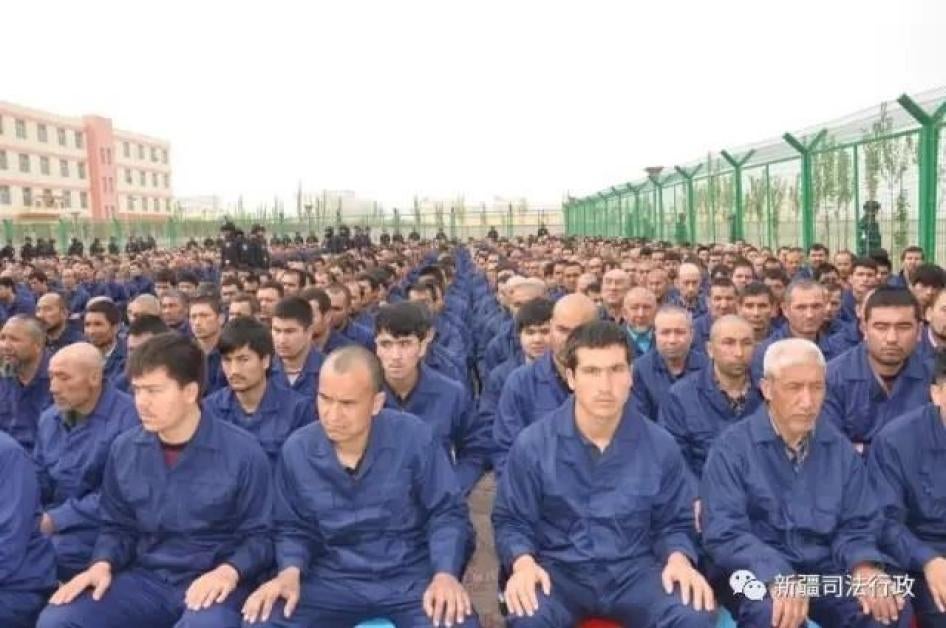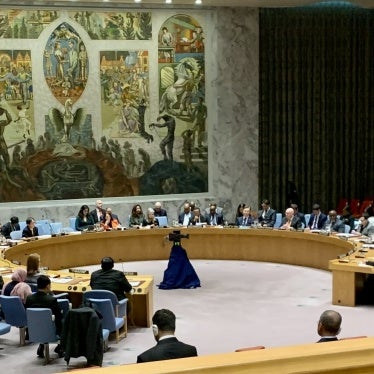This week China found itself in the hotseat at the United Nations, where it was questioned about the more than one million Turkic Muslims whom Chinese authorities have arbitrarily detained at “political education” camps in its northwest Xinjiang region.
Beijing’s UN ambassador, Zhang Jun, met with nongovernmental organizations to discuss China’s work plan for its Security Council presidency this month. At the end of the session, the diplomat faced questions about Xinjiang.
One participant, an ethnic Uyghur representative from the group Justice for All, spoke of her own relatives in Xinjiang who are missing and may be in detention. She asked Zhang how the mass detention of Uyghurs can be justified on national security grounds. Human Rights Watch then asked if the Chinese government would grant unfettered access throughout Xinjiang to the UN high commissioner for human rights, Michelle Bachelet, after recently renewing its invitation for her to visit the region.
Zhang listened to the questions without interrupting, but his response provided no real answers.
He restated China’s claim that the mass detention of Turkic Muslims in Xinjiang was vital for the global fight against terrorism. Many governments, UN rights experts, and human rights groups have rejected this false narrative, evidently intended to deflect allegations of gross rights violations.
Zhang then said that reports by human rights organizations and journalists – which have revealed large-scale rights abuses and unprecedented levels of mass surveillance in Xinjiang – were based on “lies and rumors.” But he never answered the question about granting Bachelet unfettered access to Xinjiang. Full and unimpeded access to detention camps is key, considering previous visits by diplomats and journalists have been tightly controlled and stage-managed by the authorities.
Last year, British Ambassador Karen Pierce used a public statement at the UN’s New York headquarters, backed by some two dozen countries, to condemn China’s treatment of Turkic Muslims, urge the closure of detention centers, and appeal for Bachelet’s unrestricted access.
Given Beijing’s threats and intimidation to discourage governments from criticizing its actions in Xinjiang, the courage of those countries is laudable, and UN member states should continue to call out China’s claims that Xinjiang camps are necessary for “deradicalization.”
A critical mass of global voices may make Beijing finally realize it cannot persecute an entire ethnic group without serious consequences to its international standing.










